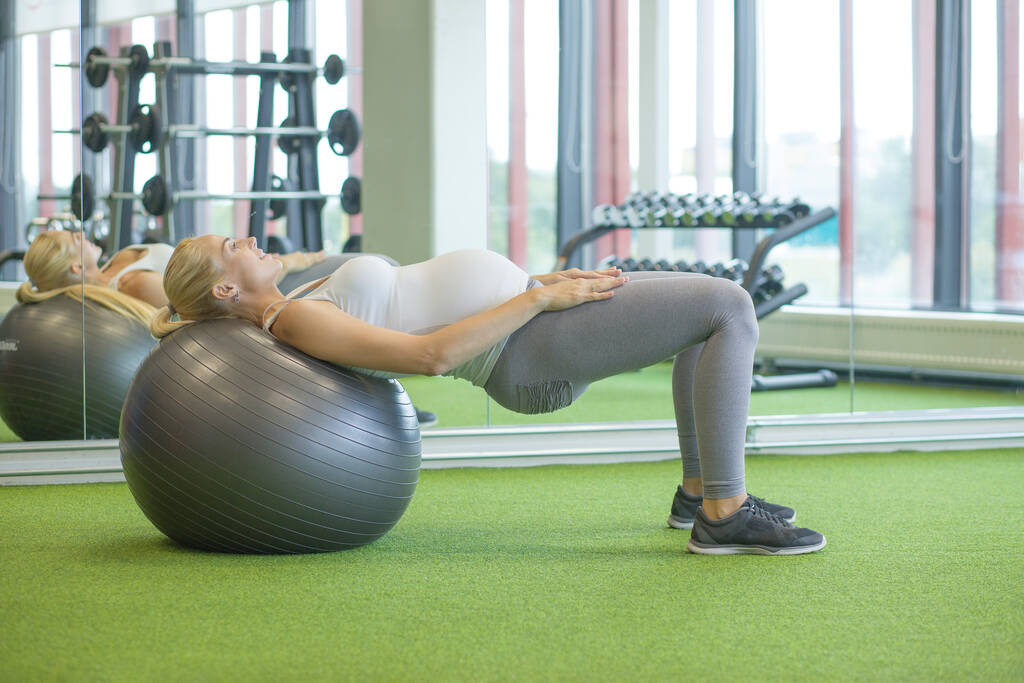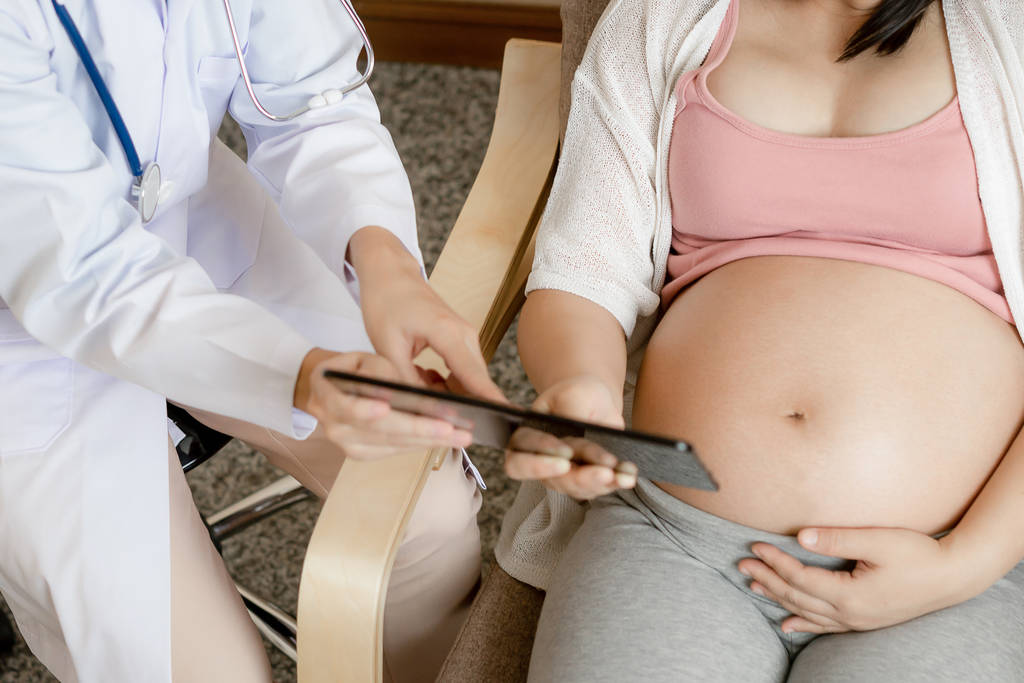Learn about the potential risks and precautions associated with practicing Pilates during pregnancy.
Understanding the Risks of Pilates During Pregnancy
Pilates is a trendy exercise that has gained popularity among people of all ages and fitness levels. It focuses on core strength, flexibility, and body awareness. But what about when you’re pregnant? Is it safe to continue practicing Pilates during this precious time? Let’s dive into the basics of Pilates and the relationship between Pilates and pregnancy to better understand the risks involved.

The Basics of Pilates
First things first, what exactly is Pilates? Pilates is a form of low-impact exercise that emphasizes controlled movements and proper breathing techniques. It was created by Joseph Pilates in the early 20th century and has since become a go-to workout for individuals looking to improve their strength, flexibility, and posture.
With its focus on the core muscles, Pilates can help pregnant women strengthen their abdominal and pelvic floor muscles, which can be particularly beneficial during labor and delivery. It also promotes overall body strength and flexibility, which are essential for carrying the extra weight that comes with pregnancy.
What is Pilates?
At its core, Pilates is a mind-body exercise that encourages proper alignment and control of movements. It combines elements of yoga, ballet, and strength training to create a unique workout experience. Pilates exercises can be performed using various equipment, such as a mat or specialized apparatus.
When practicing Pilates, you will learn to engage your deep core muscles, including the transverse abdominis, pelvic floor, and multifidus. These muscles work together to provide stability and support to your spine and pelvis. By strengthening these muscles, you can improve your overall posture and reduce the risk of back pain.
In addition to the physical benefits, Pilates also promotes mental well-being. The focus on breathing and mindfulness during each movement helps to calm the mind and reduce stress. This mind-body connection can be particularly beneficial during pregnancy, as it allows you to connect with your body and baby on a deeper level.
Benefits of Pilates
Regular Pilates practice offers a multitude of benefits, making it an attractive exercise option for pregnant women. Some of the benefits include improved posture, increased muscle tone, reduced back pain, enhanced body awareness, and better stress management.
Improved posture is a key benefit of Pilates, as it helps to alleviate the strain that can be placed on the body during pregnancy. As your baby grows, your center of gravity shifts, which can lead to an increased curve in your lower back and a rounded shoulder posture. Pilates exercises focus on strengthening the muscles that support proper alignment, helping you maintain good posture throughout your pregnancy.
In addition to improving posture, Pilates can also help you maintain a healthy weight during pregnancy. While weight gain is a normal and necessary part of pregnancy, excessive weight gain can lead to various health complications. Pilates is a low-impact exercise that burns calories and strengthens your muscles, helping you stay fit and active throughout your pregnancy.
By keeping your muscles strong and flexible, Pilates can help alleviate common pregnancy discomforts, such as leg cramps and swollen ankles. The gentle stretching and controlled movements in Pilates help to improve blood circulation and reduce fluid retention, providing relief from these discomforts.
Furthermore, Pilates exercises can be modified to accommodate various stages of pregnancy, allowing you to continue your practice while adapting to the changes happening in your body. Your Pilates instructor can provide modifications and variations to ensure that you are practicing safely and effectively throughout your pregnancy journey.
Pregnancy and Exercise
It’s no secret that exercise is beneficial for overall health. But when you’re expecting, the importance of exercise becomes even more prominent. Regular physical activity during pregnancy can help reduce the risk of gestational diabetes, preeclampsia, and excessive weight gain.
Exercise during pregnancy can help improve your mood and energy levels, boost your self-esteem, promote better sleep, and prepare your body for labor and delivery. It can also help prevent or manage pregnancy-related complications, such as back pain and constipation.
However, it’s crucial to choose exercises that are safe and suitable for your changing body. This is where Pilates comes into play, as it provides a low-impact workout option that can be gentle on your joints while still offering numerous benefits.
Pilates is a form of exercise that focuses on strengthening the core muscles, improving flexibility, and enhancing body awareness. It involves a series of controlled movements that target specific muscle groups, including the abdominals, back, hips, and pelvic floor.
One of the key benefits of Pilates during pregnancy is its ability to improve posture. As your baby grows, your center of gravity shifts, which can lead to poor posture and back pain. Pilates exercises can help strengthen the muscles that support your spine, promoting better alignment and reducing discomfort.
In addition to improving posture, Pilates can also help alleviate common pregnancy discomforts such as round ligament pain and sciatica. The gentle stretching and strengthening movements can provide relief and improve overall mobility.
Another advantage of Pilates is its focus on breathing techniques. Proper breathing is essential during pregnancy, as it helps oxygenate your body and relax your muscles. Pilates exercises incorporate deep breathing, which can be beneficial for both you and your baby.
When it comes to exercising during pregnancy, safety is of utmost importance. It’s essential to consult with your healthcare provider before starting or continuing any exercise routine. This is especially true if you have any medical conditions or complications.
During the different stages of pregnancy, certain precautions should be taken. Avoid exercises that involve lying flat on your back after the first trimester, as this can compress blood vessels and reduce blood flow to the uterus. Similarly, high-impact exercises and activities with a high risk of falling should be avoided.
Always listen to your body and modify exercises as needed. If something doesn’t feel right or causes discomfort, stop immediately and seek guidance from your healthcare provider or a certified Pilates instructor.
Pilates and Pregnancy: A Complex Relationship
While Pilates offers numerous benefits for pregnant women, it’s essential to recognize that the relationship between Pilates and pregnancy can be complex. Let’s explore why many expectant mothers choose Pilates and the potential risks involved.
Why Pregnant Women Choose Pilates
One of the main reasons pregnant women turn to Pilates is because it offers a gentle yet effective way to maintain fitness and strengthen their bodies during pregnancy. The controlled movements and focus on core strength make it an enticing option for those looking to stay active without overexerting themselves.
Additionally, Pilates can help improve balance and stability, which can be particularly helpful as your belly grows and your center of gravity shifts.
Potential Risks of Pilates During Pregnancy
While Pilates can be a safe and beneficial exercise for pregnant women, it’s essential to understand the potential risks involved. Some exercises that involve lying flat on your back or twisting your torso excessively may be contraindicated during pregnancy.
Pilates exercises that put pressure on the abdominal muscles, such as traditional abdominal curls, may also need to be modified or avoided. This is because the separation of the abdominal muscles, known as diastasis recti, is common during pregnancy, and certain movements can exacerbate this condition.
Furthermore, certain pregnancy complications or health conditions may require additional precautions or limitations when it comes to practicing Pilates. It’s crucial to consult with your healthcare provider to determine what is safe and suitable for you.
Safe Pilates Practices for Pregnant Women
If you’ve been practicing Pilates before pregnancy and want to continue during this special time, don’t worry! With some modifications and guidance from a certified Pilates instructor, you can still enjoy the benefits of this exercise form.
Modifying Pilates Exercises for Pregnancy
During pregnancy, it’s essential to modify certain Pilates exercises to ensure your safety and the safety of your baby. The key is to focus on exercises that avoid undue strain on your abdomen and pelvic floor muscles.
For example, replacing traditional abdominal curls with exercises that engage the deeper abdominal muscles, such as pelvic tilts or standing core stabilizers, can be a safer alternative. Similarly, avoiding exercises that involve deep twists or extreme ranges of motion can help protect your body during this time.
Remember, each pregnancy is unique, and the modifications needed may vary. Work closely with a certified Pilates instructor who has experience working with pregnant clients to ensure you’re practicing in a way that supports your changing body.
Safety Tips for Pregnant Pilates Practitioners
In addition to modifying exercises, there are several safety tips to keep in mind when practicing Pilates during pregnancy:
- Stay hydrated and take frequent breaks.
- Use supportive props, such as pillows or a stability ball, to maintain proper alignment and support your changing body.
- Avoid exercises that involve lying flat on your back for extended periods.
- Listen to your body and take breaks when needed.
- Wear comfortable clothing that allows for ease of movement.
- Gradually increase the intensity and duration of your workouts, if desired, and as long as it feels comfortable for you.
By following these safety tips and practicing Pilates under the guidance of a qualified instructor, you can continue enjoying the benefits of Pilates during pregnancy.
Consulting with Health Professionals
Prioritizing your health and the health of your baby is paramount during pregnancy. When it comes to exercise, it’s crucial to consult with your healthcare provider and other health professionals to ensure you’re making informed decisions.

When to Consult a Doctor
It’s recommended to consult with your healthcare provider before starting or continuing any exercise program during pregnancy. Your doctor can provide personalized guidance based on your medical history, current health status, and any pregnancy-related complications or risks you may have.
If you experience any pain, dizziness, shortness of breath, or vaginal bleeding during or after exercise, seek medical attention immediately.
Role of a Certified Pilates Instructor
A certified Pilates instructor with experience working with pregnant clients can play a key role in helping you navigate your Pilates practice during pregnancy. They can guide you in modifying exercises, provide appropriate modifications and adjustments, and ensure your safety throughout your pregnancy journey.
When choosing a Pilates instructor, look for certifications and additional training in prenatal Pilates. A qualified instructor will be knowledgeable about the potential risks and modifications needed for pregnant clients.
Conclusion
Pilates can be a fantastic exercise option for pregnant women, but it’s essential to understand the risks involved and take appropriate precautions. By consulting with health professionals and working with a certified Pilates instructor, you can continue practicing Pilates in a safe and beneficial manner throughout your pregnancy.
Remember, every pregnancy is unique, and what feels right for one person may not be suitable for another. Trust your instincts, listen to your body, and seek guidance when needed. With the right approach, Pilates can become a cherished part of your prenatal journey, helping you stay fit, strong, and prepared for the labor of love that awaits you.



